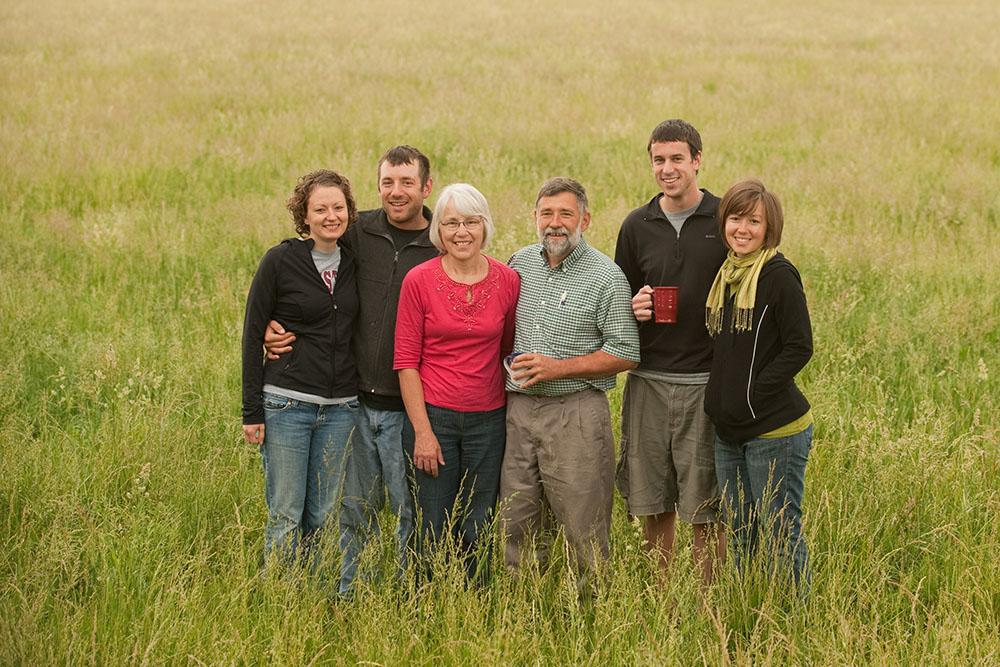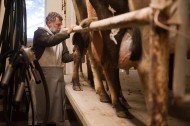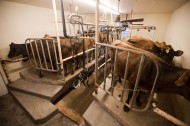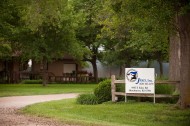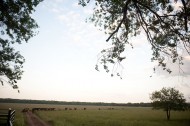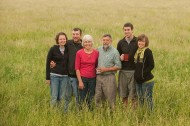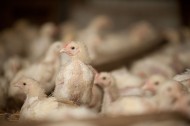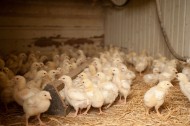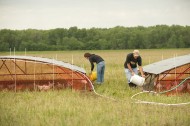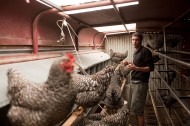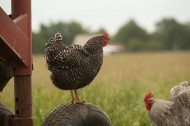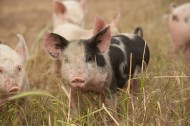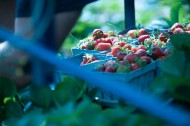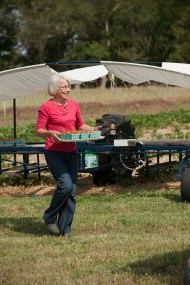Any good farm kid can identify livestock just by the smell. But at JaKo, Inc., you’ll need to use more than just your nose to discover there are cows, chickens, pigs and sheep all within a few hundred yards. Poke around a little longer and you’ll discover that the absence of eau de livestock is only the beginning of the differences between JaKo and an average farm.
JaKo, a small organic farm near Hutchinson, Kan., is owned and operated with sustainable farming practices by the King Family – Ken ’74 and Judy (Weaver) ’73 King, Kendra (King) ’01 and Mark ’07 Horst, Daniel ’04 and Robyn (Mast) ’05 King, and David ’05 and Haly King.
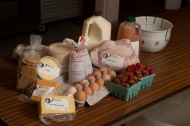
Most of the work – from milking to making butter, yogurt and cheese, to butchering and baking – is done right on the farm. Only the beef cattle and wheat for baking is raised off-site, but the beef is raised by a local farmer – Torrey Ball ’92 – who follows the same farming practices, and the wheat is purchased from an organic farm in nearby Sedgwick and ground into flour at JaKo.
“This is not a revolutionary idea,” said Kendra. “This is how everyone farmed 100 years ago.”
For the Kings, it’s been the normal, though constantly evolving way of things for more than 30 years.
When Ken and Judy moved onto the family farm in 1978, Ken had just graduated from Kansas State University (Manhattan) and quickly realized that conventional farming wasn’t for him.
“I was frustrated with all of the chemicals, so I started searching for alternative ways of doing things,” said Ken. “I experimented with a lot of different ways before finding a system that worked for us. The goal is to work with nature rather than trying to manipulate it.”
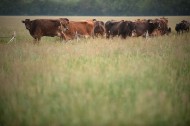 The livestock are raised on an intensive rotational grazing cycle, which maximizes nutrients as they move from one pasture to the next. Sheep and cows graze together in the same pasture because predators that would be a threat to sheep are afraid of cows. The chickens follow behind to spread the manure and nutrients around.
The livestock are raised on an intensive rotational grazing cycle, which maximizes nutrients as they move from one pasture to the next. Sheep and cows graze together in the same pasture because predators that would be a threat to sheep are afraid of cows. The chickens follow behind to spread the manure and nutrients around.
Seasons are also taken into consideration. Calves, lambs and pigs are bred to be born in the spring when they have nutrient-rich grass for grazing. Respecting the seasons is good for the animals and the highest quality seasonal products.
The end result is happy, healthy animals that produce chemical- and hormone-free products and, ultimately, happy, healthy consumers.
“We’re part of the movement of knowing your farmer,” said Judy. “Our customers are local. We know them, and they know us and trust us.”
As a family, the Kings have tweaked and fine-tuned the farm’s operations over the years. Though the King children grew up raising calves and running a summer chicken business, which helped them come out of college debt free, they didn’t necessarily expect their “everywhere” to be the family farm. But common traits are passed through the generations, and for the Kings it starts with a love for the land and its resources.
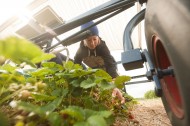
“When we think of something new to provide, we ask ourselves, ‘Can it be produced here, or can it be produced by someone who does things the same way we do?’” said Kendra.
Hesston College was also the natural and comfortable starting place that set them on track to developing the business and entrepreneurial skills they use every day. They foster a love for their alma mater and give back as Partners and through gifts of ground beef and eggs to Food Service.
“My parents stressed generosity, and that is something I tried to pass on,” said Ken.
Every person has their jobs around the farm to keep it running smoothly. Even David and Haly, who live in Goshen, Ind., contribute by maintaining the website and developing new software.
“We try to work smarter instead of harder,” added Daniel.
Their efforts are not in vain. The 250 acres of pastureland support four full-time positions and, essentially, three families, whereas a commercial farm would need considerably more acres to support one full-time position.
“Our enterprises are driven by our passions,” said Judy. “We do this because we believe we were meant to be good stewards of the land and our resources.”


